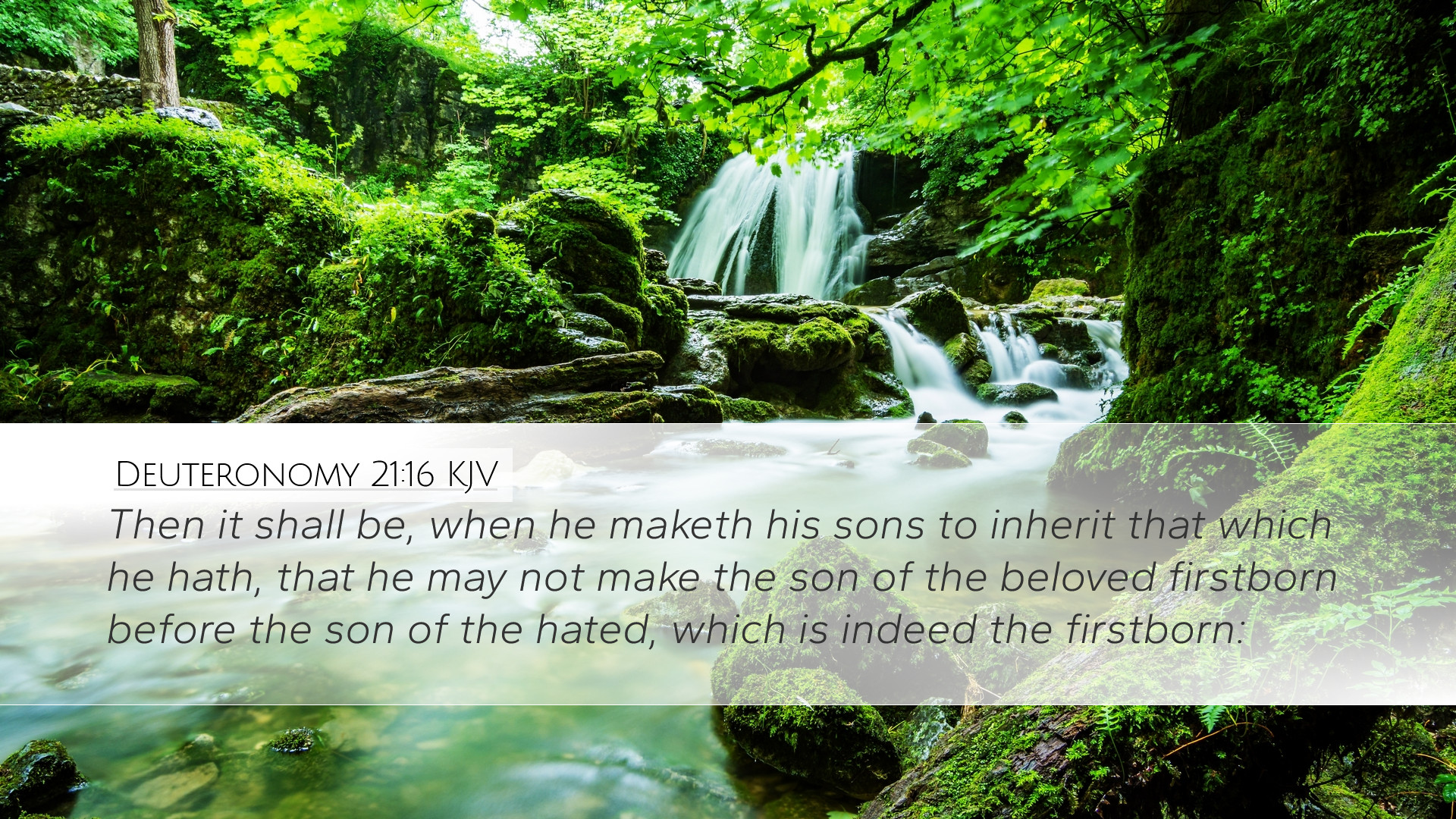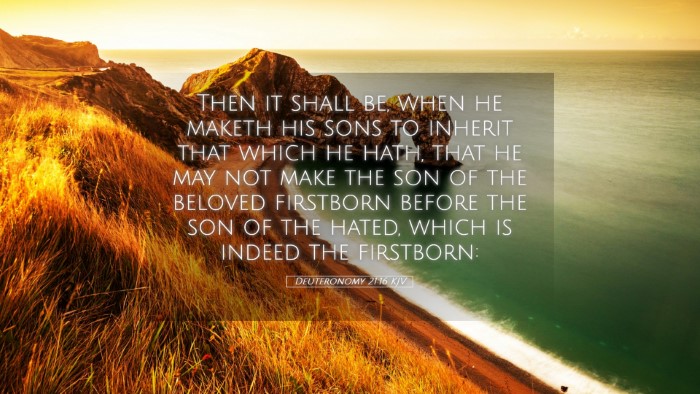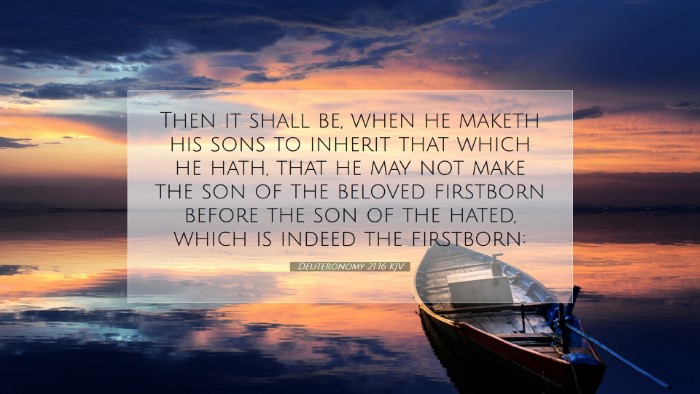Commentary on Deuteronomy 21:16
Verse: “If a man has two wives, one loved and the other unloved, and both the loved and the unloved have borne him children, and if the firstborn son is of the unloved wife…” (Deuteronomy 21:16, ESV)
Introduction
The passage in Deuteronomy 21:16 addresses the inheritance rights of a firstborn son, particularly in contexts involving polygamous relationships. This verse raises significant theological and ethical questions, particularly concerning God's design for family, justice, and the treatment of individuals within complex social arrangements. Commentaries from various public domain sources provide deep insights into the implications of this verse.
The Context of the Passage
Understanding the historical and cultural backdrop of ancient Israel is crucial in interpreting this text. The people of Israel often practiced polygyny, where a man could have multiple wives. This practice was not ideal but was tolerated under specific regulations. Here, the Law addresses the potential inequalities arising from such arrangements.
Interpretive Insights
-
Matthew Henry's Commentary:
Henry emphasizes God’s order in familial relationships and the necessity of justice in inheritance laws. He notes that this statute sought to protect the rights of the firstborn, ensuring that regardless of the mother's status in the father's affection, the firstborn son retains his rightful heritage. This underscores God’s commitment to fairness and the continuity of the family line.
-
Albert Barnes' Notes:
Barnes provides a rich exploration of the societal implications of this verse. He explains that the favored wife, despite her privileged status, cannot override the claim of the firstborn son from the unloved wife. This serves as a reminder of God’s sovereignty over human affairs and the principle that divine order must prevail over personal favoritism.
-
Adam Clarke's Commentary:
Clarke highlights the moral dimensions of this law, suggesting that it serves to counterbalance the potential neglect or mistreatment of children based on their mother’s societal standing. He argues that the unequal affection shown by the father does not diminish the intrinsic rights of the child, thus ultimately advocating for dignity and respect in familial dynamics.
Theological Implications
The examination of Deuteronomy 21:16 presents various theological principles relevant to modern-day readers.
-
Value of Every Child:
This passage emphasizes that every child has inherent worth, regardless of their parentage. God’s laws reflect a deep concern for justice and the protection of the vulnerable, corresponding with the character of God as a righteous judge and protector.
-
Human Relationships and Divine Order:
The scripture showcases the complexity of human relationships and the necessity of divine guidance in ordering familial matters. Pastors and theologians can derive from this the importance of seeking God’s direction in family dynamics and the ethical implications of favoritism.
-
Christological Reflection:
Jesus, in the New Testament, emphasizes love and justice in relationships. The ideal of being children of God transcends earthly divisions, and the principle of love above all is echoed in the call to treat all individuals with equity and respect.
Practical Applications
While the specific cultural context of this law may differ from contemporary society, the underlying principles remain relevant.
-
Ministry to Broken Families:
Ministers can draw upon this text to advocate for inclusive and equitable practices within families, focusing on the dignity of all children regardless of their family origins. It encourages ministries to support and uphold the rights of the marginalized.
-
Encouragement for Equity and Justice:
This commentary inspires individuals to advocate against favoritism and injustice in every form, whether in familial settings or broader societal contexts. It promotes the idea of fairness as a reflection of God’s justice.
-
Importance of a Strong Family Unit:
In alignment with biblical teachings, fostering unity and love within the family is essential. This passage serves as a reminder that God’s intent encompasses familial harmony and responsible stewardship over relationships.
Conclusion
Deuteronomy 21:16 encapsulates vital themes of justice, love, and God’s order amidst human complexities. It can guide contemporary practices in promoting equality and fairness, reflecting God’s sovereign will. As we study this verse, we are challenged to embody the principles of justice and love in our interactions within families and society at large.


